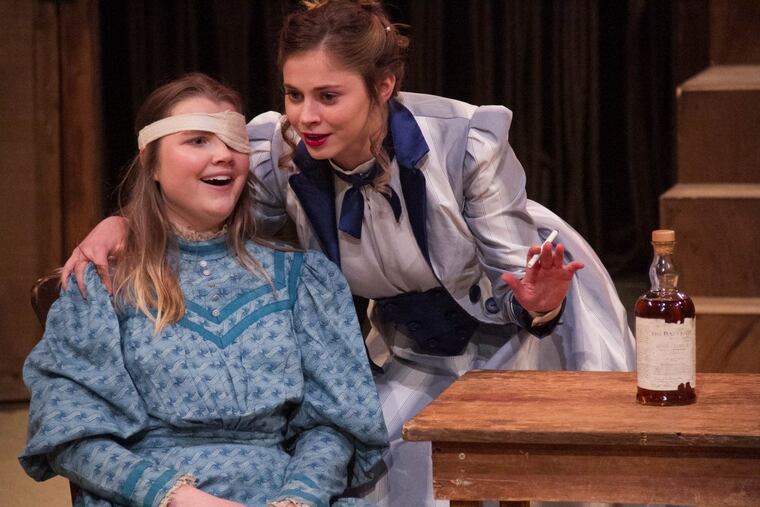EgoPo's 'Madaket Road' is an odd, complicated, disturbing and moving conclusion of 'Lydie Breeze Trilogy'
It is not always clear where 'Madaket Road,' Part III of John Guare's 'Lydie Breeze Trilogy' at Egopo Classic Theatre, is leading us, but it is quite moving.

EgoPo Classic Theatre's production of Part III: Madaket Road concludes John Guare's Lydie Breeze Trilogy under Lane Savadove's endlessly inventive direction. We find the Nantucket commune where we spent the past two plays much changed.
The theatrical style has changed, too, and we are now in a mystical/psychological realm where ghosts walk and talk and strangers appear out of the night. The venue has been transformed as well: it's now a thrust beach – the stage is made entirely of sand – where two wooden boxes serve as doors to both the house and the outside world and a curtain of hanging ropes separate the real world from some other realm. There is sporadic, sometimes intrusive, music to add to the odd atmosphere.
The title character, the courageous and idealistic Lydie Breeze (Melanie Julian), has, we learn, committed suicide. Her lover, Dan, has been killed by her husband, Joshua (the excellent Charlie DelMarcelle), who is now a dispirited and ironical wastrel who drinks too much after many years in prison. It is a brave playwright who will give his audience reason to invest in his intriguing characters and then pull the rug out from under them. But although the utopian vision has failed, as it inevitably would, Guare insists on finding hope.
That hope resides in the next generation: Lydie Breeze's daughter, also called Lydie (Kylie Westerbeck), is a young girl who can barely read, knows nothing of the world and is haunted by her mother's death by hanging. But when Lydie's crass older sister Gussie (Kristie Ecke) returns on William Randolph Hurst's yacht, what remains of the family is thrown into chaos. There is much haunting – the past will not stay past. The caretaker, Beatty (Hannah Gold), imagines that Jeremiah (Grant Struble) is the man who was her lover many years ago, and as she imagines him, so he becomes that lover.
There are too many ideas woven into and rising from this complicated plot: the mystery and burden of heredity; the transformation inherent in theater, where an actor becomes another person but needs a self to "come home to;" the romanticism of erotic death; the toxic allure of wealth and political power; the absurdity of a sweet young man (Dane Eissler) who is a Christian Scientist, delivering medicine he is forbidden to handle to cure Lydie's temporary? imagined? blindness. An inventor (Shamus Hunter McCarty) turns up, sure that Gussie is a creature from Greek mythology. It is not always clear where the play is leading us, but it is, often inexplicably, quite moving.